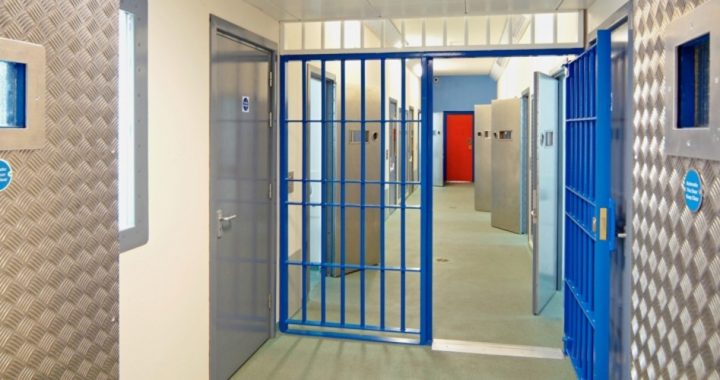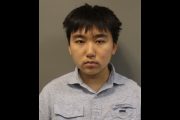
Ghislaine Maxwell wants a federal judge to order prosecutors to turn over the names of the victims named in her indictment. She also wants the judge to order her release into the general prison population at the Manhattan Correctional Center in New York so she can better participate in her defense.
Maxwell’s attorneys requested the names and the move in a letter to Judge Alison Nathan of the U.S. District Court for the Southern District of New York.
In July, federal authorities indicted the jet-setting millionairess on charges of trafficking young girls for deceased Wall Street tycoon and sex-offender Jeffrey Epstein, who supposedly committed suicide to avoid prosecution.
The Plea
“The Court should order the government to disclose the identities of Victims 1-3 to defense counsel, subject to the restrictions of the protective order, because Ms. Maxwell cannot prepare for or receive a fair trial without this information,” the attorneys argue.
Because the government’s case is based on their accounts, “it is therefore critical for the defense to know the names of these individuals as soon as possible, so that we can mount an effective defense investigation and adequately prepare for trial.”
Because Epstein molested hundreds of victims in Florida, New York, New Mexico, and Great Britain, the attorneys say, and Maxwell’s crimes are alleged to have occurred 25 years ago, “the defense should not have to speculate which of these individuals are Victims 1-3 referenced in the indictment.”
The letter also complains about prosecutors’ tardiness in providing discovery materials, and, citing case law, says “District courts have the inherent authority to compel pretrial disclosure of the identities of government witnesses.”
“This principle has been applied in sex crimes cases, where the right of the defendant to prepare a defense can outweigh the privacy interests of alleged victims referenced in the indictment and warrant the disclosure of their identities,” the attorneys argue.
Many of Epstein’s victims are publicly known, the attorneys aver, and Victims 1-3 “are no longer minors, but are now adults in their late 30s or early 40s, which provides additional assurance that they will be willing to appear for trial.”
Help With Her Own Defense
Maxwell’s confinement is a reaction to Epstein’s so-called suicide and “has impacted her ability to assist in her defense,” the attorneys continue.
Epstein, recall, was found dead in his cell of an apparent hanging that looked suspiciously like murder.
Thus, Maxwell is under constant supervision and surveillance, the attorneys claim:
She continues to be surveilled 24 hours a day by security cameras and by multiple prison guards, many of whom do not appear to be regular MDC personnel. These prison guards constantly observe Ms. Maxwell and take notes on her every activity, including her phone conversations with defense counsel. Until recently, Ms. Maxwell was subjected to suicide watch protocols, including being woken up every few hours during the night and being forced to wear special clothing, despite the fact that she, unlike Mr. Epstein, has never been suicidal and was never diagnosed as exhibiting risk factors for suicide. Her cell is searched multiple times a day and she has been forced to undergo numerous body scans. In addition, Ms. Maxwell’s access to the standard prison resources available to other pretrial detainees in the general population has been extensively curtailed or eliminated altogether.
Those conditions threaten Maxwell’s right to help in her own defense, not least because the “case will require time-consuming review of voluminous discovery materials” and she “must therefore have adequate time to review the materials, to confidentially take notes on them, and to discuss them with her attorneys.”
Under the circumstances, she can’t do that because the three hours allotted to review discovery materials is instead used for “recreation, exercise, and personal hygiene, including showers.” The authorities “should not be permitted to force Ms. Maxwell to choose between maintenance of her physical and mental health and participating in her own defense,” the attorneys argue, and in any event three hours a day — exercise and showering regardless — is not enough time to work on her case.
The first set of materials produced under discovery is 13,000 pages, the attorneys observe. Even using only one minute per page to review them, and using the whole three hours, Maxwell would not finish until November, which will not suit the schedule for the case.
Denied Bail
Nathan denied bail for Maxwell because she has the wealth, means, and motive — millions of dollars, three passports, and the possibility of what amounts to life in prison — to flee the country.
Federal agents collared her at a posh estate hidden deep in New Hampshire and protected by former British military personnel. She had rigged her cellphone to avoid tracking.
She pleaded not guilty to the six-count indictment.
Image: stocknroll/iStock/Getty Images Plus
R. Cort Kirkwood is a long-time contributor to The New American and a former newspaper editor.



